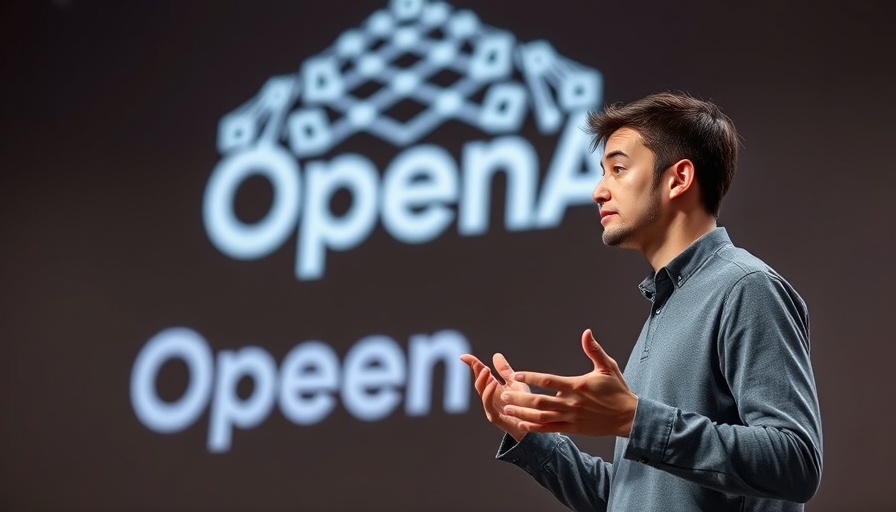
OpenAI's Bold Spending Plan: What It Means for the Future
In a significant new announcement, OpenAI, supported by Microsoft, has revealed a staggering forecast that projects its spending could reach $115 billion through 2029. This figure is roughly $80 billion higher than their previous estimate, signifying a dramatic increase in their investment as they aim to bolster the infrastructure that supports their flagship product, ChatGPT. This financial leap reflects OpenAI’s ambition to fortify its capabilities in the rapidly evolving field of artificial intelligence.
Understanding the Investment Landscape in AI
The ramp-up in investment comes at a time of increased competition and innovation in the AI sector. Major tech players are racing to enhance their offerings, and OpenAI is positioning itself as a frontrunner. This growth trajectory showcases not only a commitment to develop advanced AI technologies but also an acknowledgment of the substantial resources required to stay competitive.
Experts suggest that OpenAI's substantial investment is a response to both market demands and the necessity for robust AI infrastructure. In the coming years, we can expect to see advances that will likely reshape various sectors, from healthcare to education, as more companies harness the power of AI-driven solutions.
The Ripple Effect on Microsoft and Tech Industry
As a key backer, Microsoft stands to benefit significantly from OpenAI's developments. With their Azure cloud services powering much of OpenAI's operations, this partnership highlights a strong synergy between the two entities, potentially transforming how businesses operate in the digital age. Microsoft’s push into AI isn’t just a trend; it represents a strategic pivot towards long-term leadership in technology.
Microsoft's role in supporting OpenAI is illustrative of a larger trend within the tech industry—collaboration over competition. Major firms are increasingly recognizing that pooling resources and talents—such as those seen in the partnership between Microsoft and OpenAI—can lead to exponential advancements in technology.
Future Predictions: Where Will This Lead?
The strategic investments by OpenAI not only promise advancements in AI capabilities but also open up discussions about the ethical implications of such powerful technology. As AI continues to integrate into daily life, concerns regarding bias, privacy, and job displacement arise. OpenAI has a fundamental responsibility to address these issues proactively, ensuring that their innovations promote equity and accessibility.
Looking ahead, as OpenAI and its competitors ramp up spending and capabilities, we anticipate an influx of AI applications that could redefine consumer experiences. This includes a more personalized approach across various platforms where AI technologies might predict consumer preferences or automate tasks, enhancing efficiency for both users and businesses.
Actionable Insights for Technological Readiness
Understanding OpenAI’s investments and the broader implications for the tech industry is crucial. Businesses looking to integrate AI should be proactive—investing in training, digital tools, and strategies that align with upcoming advancements. Companies must remain adaptable to harness the power of AI while also prioritizing ethical standards and data protection.
Engaging with AI technologies is no longer optional; it's a strategic move that can potentially place companies at the forefront of innovation. Preparing for this evolution requires a concerted effort from all stakeholders involved.
 Add Row
Add Row  Add
Add 




Write A Comment